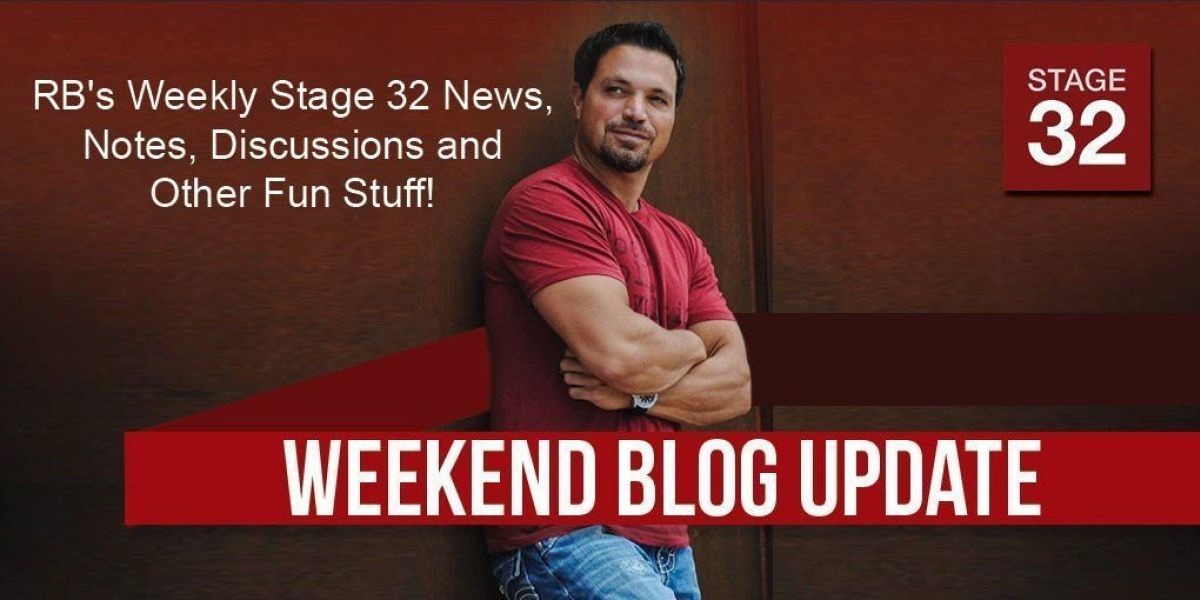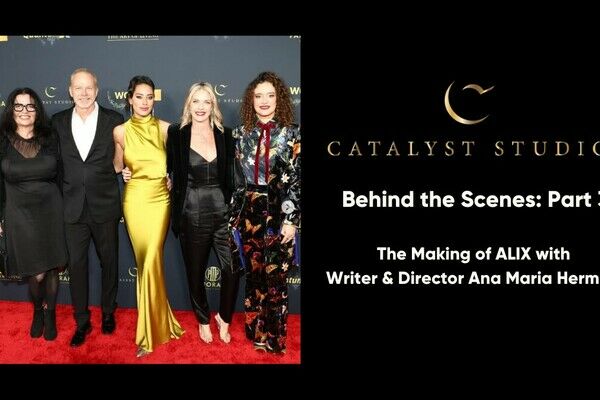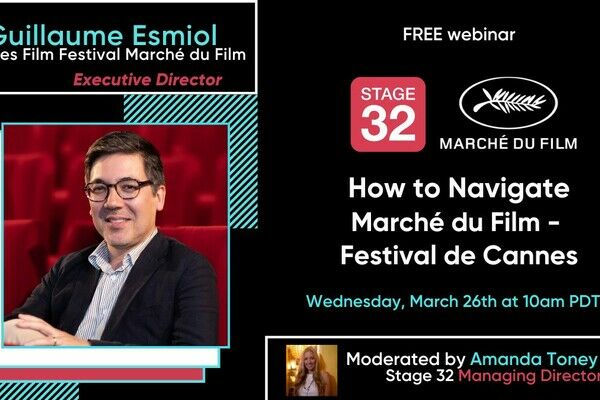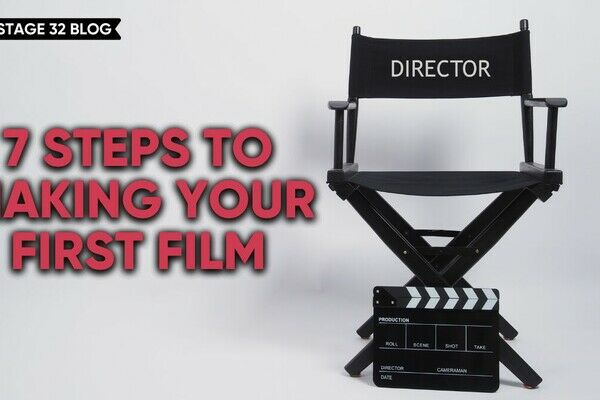10 Things I’ve Learned as a Scoring Assistant on 'Ride Along 2'
I’ve recently had the pleasure of working as Christopher Lennertz's scoring assistant for Universal Picture’s Ride Along 2 (coming out tomorrow - Friday, January 15th, 2016!). I’ve worked on many projects in this role since then, but being a scoring assistant on my first big studio film taught me many lessons.
1. Always Know What’s Happening/Get CC’d:
Try to get yourself cc’d on as many email chains as possible. Sure it makes for a crowded inbox (Gmail filters/folders are a huge help!) but you’ll be a much happier/calmer/knowledgeable person for it. Like data, it’s always important for all information to have a back-up, and a tertiary back-up after that. So when the orchestrator asks you how many trumpets will be at the recording session, or the copyist asks the time of the session, or Tim Story asks you what the wifi password is (all three things have happened to me), you’ll know the answer. It saves time and helps the entire team look well-oiled and efficient.
But to do that you must first...
2. Know the Team! (And how their jobs work):
As you’re getting CC’d, get introduced to as many of the people on the team as possible. Know who the post-production coordinator is, who the contractor is, who the music editor is, etc. And know what they do, what deliverables they need from you and the best format for said deliverables, and what it is you receive from them. That way, if you need to know when you’ll receive new picture you can ask post-production. If you want to know what to deliver for an upcoming playback, you can reach out to the music editor. And so on and so forth.
All of this obviously becomes much more intuitive the longer you work and it all becomes easier as you...
3. Make Friends
If you’re lucky like I am, the composer you work for will surround him or herself with good, hard-working people so this step comes quite naturally. But get to know the people on the team. Be kind, be courteous, be straight-forward and honest. I’ve come to be very good friends with the score producer and audio engineers. The orchestrators are some of the best people I’ve met in Los Angeles. I’ve even gotten to know many of the musicians. This way, not only will you feel more comfortable asking questions, but the entire team works more smoothly because you want everyone to have everything they need at as decent an hour as possible since you care both about the project and the person.
And even when a “decent hour” is not possible, you’re all much more likely to happily...
4. Be available
Movies have lots of changes and lots of cooks. TV has lots of very short deadlines. And in all cases, EVERYONE has a lot on their plate so it’s expected that you are both flexible and available, especially during crunch time (preparing for a playback, preparing for recording). Even if you’ve gone home for the night, keep your phone nearby because if someone else is working late they may very well have a question that needs an immediate response so they may continue to work effectively.
And if you are answering questions off-site it becomes increasingly important to...
5. Know Thy Picture
Yes, I switched over to commandment-speak for this one because picture is gospel. Once your team receives the first delivery, familiarize yourself with the entire film immediately. Know the character names and their relationships with each other. Know actor names as well in case others refer to characters by the actor’s name. And most importantly, know the cues. Obviously you should know cue numbers, titles, short scene descriptions, mood, etc. But you should be very familiar with the hit points as well, as there are typically quite a few picture changes that happen throughout the course of the scoring process. Say, in Reel 3 version 8B there is a flute trill that happens right after Kevin Hart says “*********” (#noSpoilers!). So if a picture change comes in and you line up the music start time with the new scene start time and you hear a bassoon there instead, you know that something has changed in this new picture version. So then you know to find and quantify that change and relay that information to the composer. Always know what picture version you’re on for each reel and always know what cues have changed...Always.
It also helps to know ahead of time when you will receive new picture so you can...
6. Plan Ahead
Know when the next playback is and start gathering materials for it as soon as possible. Keep one eye on all recording and overdub dates as those little buggers always sneak up on you faster than you think! Give copying/orchestration as much time as possible and try to make any/all deliveries as soon as you can. Even if this means delivering in chunks. There is often a cue or two that straggle along due to pending producer approval, but say if your Pro Tools Operator has the bulk of the necessary items to begin setting up sessions, then he or she will at least have all of that already done by the time the last cue comes along. Of course, it’s always nice to check in with whomever you’re working with to learn their preferred workflow. There may be instances where they’d rather wait to have everything at once. But always have the option of batch delivery available.
Planning ahead will also help you...
7. Stay Organized
The composer has enough to deal with with writing the score, communicating with the director, often times conducting, and a whole laundry list of responsibilities. It’s your job to make sure the train is running smoothly behind him or her. Keep a detailed information system, whether it’s Google Docs or another platform, that others can check with ease that includes cue information, timing information, picture information, etc. AND KEEP IT UPDATED! A spreadsheet is worth less than nothing if it’s not always kept up-to-date. It’s actually more a detriment than anything else if it is out-of-date. Stay centered and always know the next 3 moves. Being frazzled never helps anyone either.
One other way to help everyone stay organized is to know that...
8. Online Media Management is Your Friend
Anything that the security perimeters of the project allow to be shared online should be in a secure manner (pdfs and tempo maps are usually a good start). Dropbox, MediaSilo, Aspera, whatever your platform of choice is, make sure that everyone is on it and uses it effectively. Keep the file management system transparent and consistent and make sure they offer a mobile version or app for review on the go.
This is a great way of duplicating knowledge and access. Another integral way to do this is to...
9. Always CC
This is paying it forward from item #1. For the sake of time, there will be occasions when you have to make small decisions and answer fringe questions: i.e. “How many scores do you need for the booth?” Now if you’ve followed everything above you should never have to guess and you can make an informed decision based on the amount of mixers, pro tools operators, etc. that will be there. But just in case there’s a factor you’re unaware of, CC the relevant people and if the relevant people have assistants always CC them as well. This way everyone is informed, and changes can be made ahead of time if necessary.
10. QC!
Last but certainly not least, before you deliver anything, quality control your work. Make sure all timecodes are entered correctly. Make sure your click tracks line up with the grid. Make sure the tempo and meter changes in Pro Tools match the tempo and meter changes on the page. And since you’re working with so many deadlines, make sure you’ve developed a method to check all of these things efficiently! Use your newfound friends on your team as second eyes and ears and do all of this with as much lead time as you can so you can roll up to a recording session relaxed, confident and prepared.
And of course, be sure to check out Ride Along 2 tomorrow and see all the wonderful work done by these great people.
About Dara Taylor
Dara Taylor is an HMMA-Nominated composer for film and multimedia based in Los Angeles. She has composed music for a wide variety of genres from Indie comedies, dramas, and thrillers, to the Lifetime reality series Child Genius, and has also worked in the music department for large studio productions like The Wedding Ringer, Horrible Bosses 2, Ride Along 2 and ABC's Agent Carter and Galavant.
Dara, born in Poughkeepsie, NY and raised in Lockport, NY, spent most of her formative years in gospel church choirs as well as school choruses, bands, and musicals. Primarily a vocalist, she studied classical voice as a Mezzo-Soprano under Judith Kellock at Cornell University. Throughout college Dara became increasingly drawn towards composition and studied independently with Zachary Wadsworth, then Steven Stucky. After graduating cum laude in Music and Psychology from Cornell, Dara went on to study Film Music Composition under Mark Suozzo at New York University where she received a Masters of Music.
In 2015, she was nominated for a Hollywood Music in Media Award for her score on the film Undetectable.
Dara currently lives in Los Angeles, CA working on multiple independent projects and is highly active in the composing community, doing work for the Society of Composers and Lyricists and Christopher Lennertz.
If you're interested in watching the Stage 32 Next Level Webinar, "Getting the Best Music for your Movie" taught by Christopher Lennertz, click here!
Like this blog post? Please share it on social media (Facebook, Twitter, LinkedIn, email etc) by using social media buttons at the top of the blog. Or post to your personal blog and anywhere else you feel appropriate. Thank you.
As always, we welcome thoughts and remarks on ANY of the content above in the Comments section below...
| RB's Stage 32 News, Notes, Discussions and Other Fun Stuff (January 15, 2016) |
| The Only Rule Is Success - 3 Lessons I Learned |













